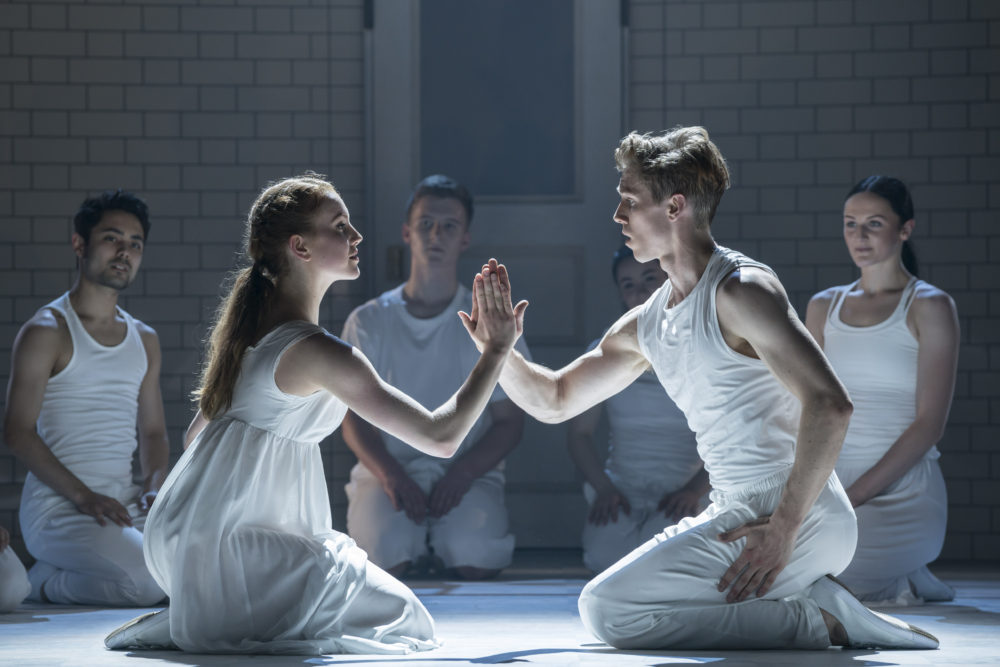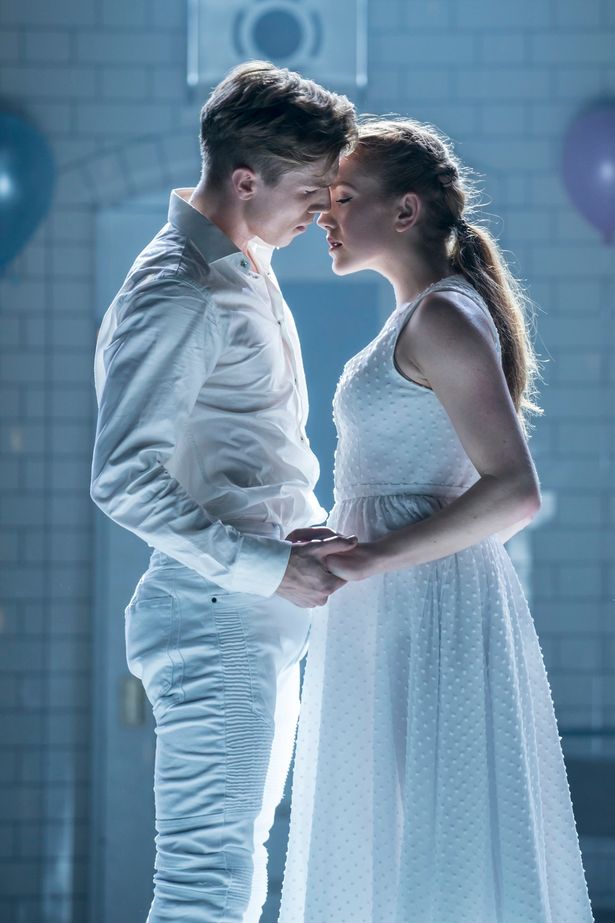
Reviewed by Luke Seidel-Haas

“Two household’s, both alike in dignity. In fair Verona where we lay our scene”. So begins Shakespeare’s 1597 tragic love story of star crossed lovers. Intended as a radical reinterpretation of the classic tale, Matthew Bourne’s New Adventures company does away with the feuding families, the setting and indeed many of the characters. Instead the tragedy is set within the confines of the “Verona Institute” – some form of psychiatric ward in the not too distant future. And rather than being from rival Montagues and Capulets, the eponymous lovers are two patients being treated in the institute.
Stripping back the characters and removing the text forces you to concentrate on the connection between the characters, and in that aspect Bourne’s production is excellent. the chemistry between Romeo (Andy Monaghan) and Juliet (Seren Williams) is beautiful; their moment of meeting at the party and subsequent coming together crackles and fizzes with excitement. As they weave around each other and intertwine you feel their passion, all sound tracked brilliantly to Prokofiev’s score. Their romance is the highlight of the piece, with it’s devastating ending heartrendingly performed by the pair.
Similarly impressive is the ensemble cast. As part of New Adventure‘s endeavour to nurture the next generation of dancing talent in the UK, the whole show was cast from open auditions nationwide, and at each venue on the tour six local dancers take up place in the ensemble. It is testament to their talent and the hard work of Bourne’s creative team that they blend seamlessly in with the ‘permanent’ cast.

Less convincing is the overall concept for Bourne’s piece. Romeo and Juliet has been reinterpreted in different ways ever since it’s creation. Each interpretation can reveal fresh or different perspectives, from Baz Luhrman’s film with guns set on Venice Beach to the 1957 film West Side Story highlighting the violence between rival gangs. Yet here the interpretation falls flat. Rather than rival gangs or families, the Verona Institute is divided into girls and boys. Each are generally kept apart by officious looking guards and officers, yet are allowed to interact. The two sides don’t appear to hate each other and the only obvious tension between them is sexual tension. As a result the drama has to come from a prison guard, playing the equivalent to the Tybalt role. This change in dynamic removes much of the fuel which creates the drama in Shakespeare’s script.
The other issue with Bourne’s Romeo + Juliet is the choice of location. Set in a mental institution, the cast are subjected to medication, examination and strict exercise regimes. Their movements vary from uptight and restricted in the presence of authority to wild and passionate when let loose. Yet the subject of mental health isn’t really tackled or explored. Why have these young people been institutionalised? What help are they receiving while inside? A cynic might think that the setting was chosen to tie in with the increasing awareness of mental health, and to tap in to the surrounding zeitgeist. However, in doing so did they consider how it looks to then show people with mental health problems rocking backwards and forwards before ultimately killing each other or themselves?
As a piece of modern dance, Bourne’s production is a triumph. The choreography is dazzling, the music and score have been adapted from the original with a pared down orchestra by Terry Davies to great effect and the ensemble work from the cast is excellent. Yet sadly as an overall piece of work it doesn’t feel fully thought through with regards to how the reinterpretation changes the dynamics of the piece or intent behind it. Excellent choreography and performances, hampered by issues with the interpretation.
Matthew Bourne’s Romeo + Juliet is running at the Wales Millenium Centre until the 22nd June 2019.
